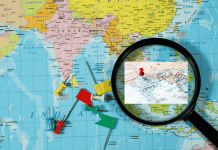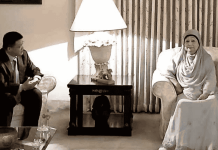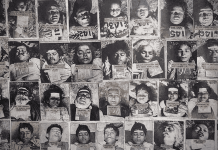The Washington Post said in an analysis that the nation which produces the first safe and effective vaccine will gain not only bragging rights but also a fast track to putting its people back to work, a powerful public health tool to protect its citizens and a precious resource to reward allies.
It can be assessed that with testing underway on five experimental vaccines in China and four in the United States, the race to produce a vaccine for COVID-19 has taken on political dimensions that echo jockeying for technological dominance during the Cold War, including the space race after the launch of Sputnik in 1957.
“The vaccine is partly about health, but it’s absolutely equally as much about getting our engine of productivity back,” Lawrence Gostin, a professor of global health law at Georgetown University Law Center, told the Post.
“If China had it and we didn’t, their economy could hum, and ours would continue to be in social distancing lockdowns and disruptions. This has economic, political and public health consequences,” he added.
In an election year in the United States, the prospect of a successful vaccine by year’s end could also be a potent campaign tool.
In mid-March, when the United States launched human testing of its first experimental coronavirus vaccine, scientists in China on the same day announced their own trial would begin. Days after a company unveiled the partial data from the first US human tests last month, a complete report of the Chinese trial was published in a prestigious medical journal.
Both countries are also taking huge financial risks to scale up production of possible vaccines before they know any are safe and effective — a gambit to ensure their citizens won’t have to wait. The nation’s top infectious disease expert said the US will manufacture 100 million doses by year’s end.
“We’re going to start manufacturing doses of the vaccines way before we even know that the vaccine works,” Anthony S. Fauci said in an interview with the Journal of the American Medical Association then.
Scientists see the race as one in which academic research groups, companies and countries are working in rare unity against a common enemy — the virus. But health policy experts already see “vaccine nationalism” creeping in.
On Friday, Trump announced he would terminate the United States’ relationship with the World Health Organisation, which he accused of misleading the world about the coronavirus at the urging of the Chinese government. The United States skipped an international pledging conference in early May that put billions toward developing a vaccine for the world.
“Within China, the issue of the vaccine has taken on a symbol of whether China is going to be the leading power in the world,” said Bonnie Glaser, director of the China Power Project at the Center for Strategic and International Studies.
Political leaders criticised for their handling of the pandemic and eager to notch a win have already begun securing doses for their own citizens — as the United States did in making a USD1.2 billion investment to secure 300 million doses of a vaccine being developed by the University of Oxford and the pharmaceutical company AstraZeneca.
The first 100 million doses have been committed to the United Kingdom. Companies are spreading their manufacturing plants across multiple countries, partial protection against the possibility that any nation prohibits exports.
Who gets the vaccine first matters not just for national pride but because that country’s citizens will almost certainly get first access to limited doses — even if the virus is raging in another part of the world.




